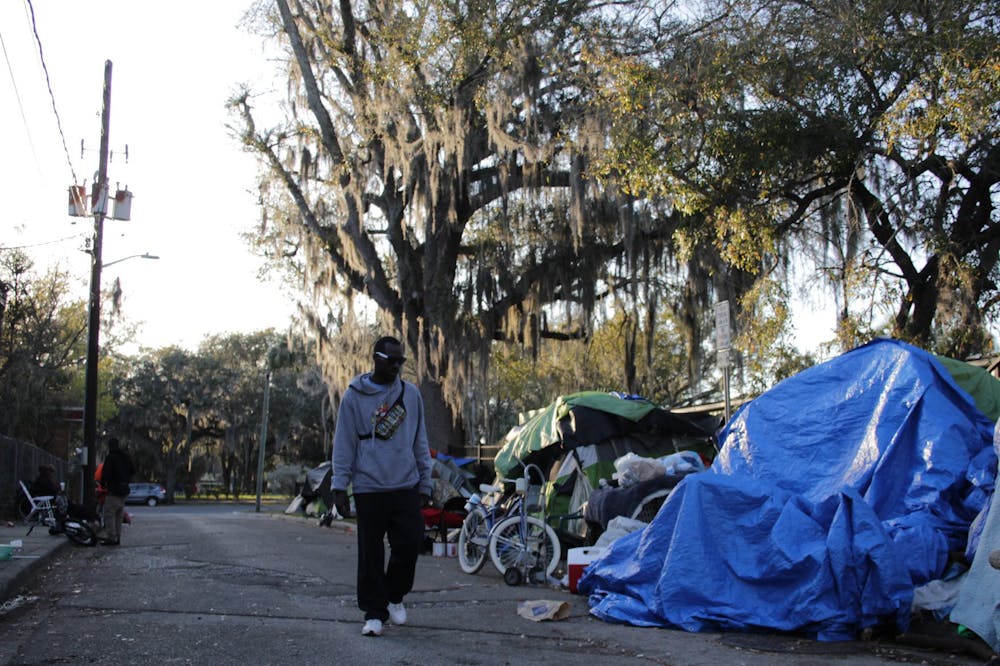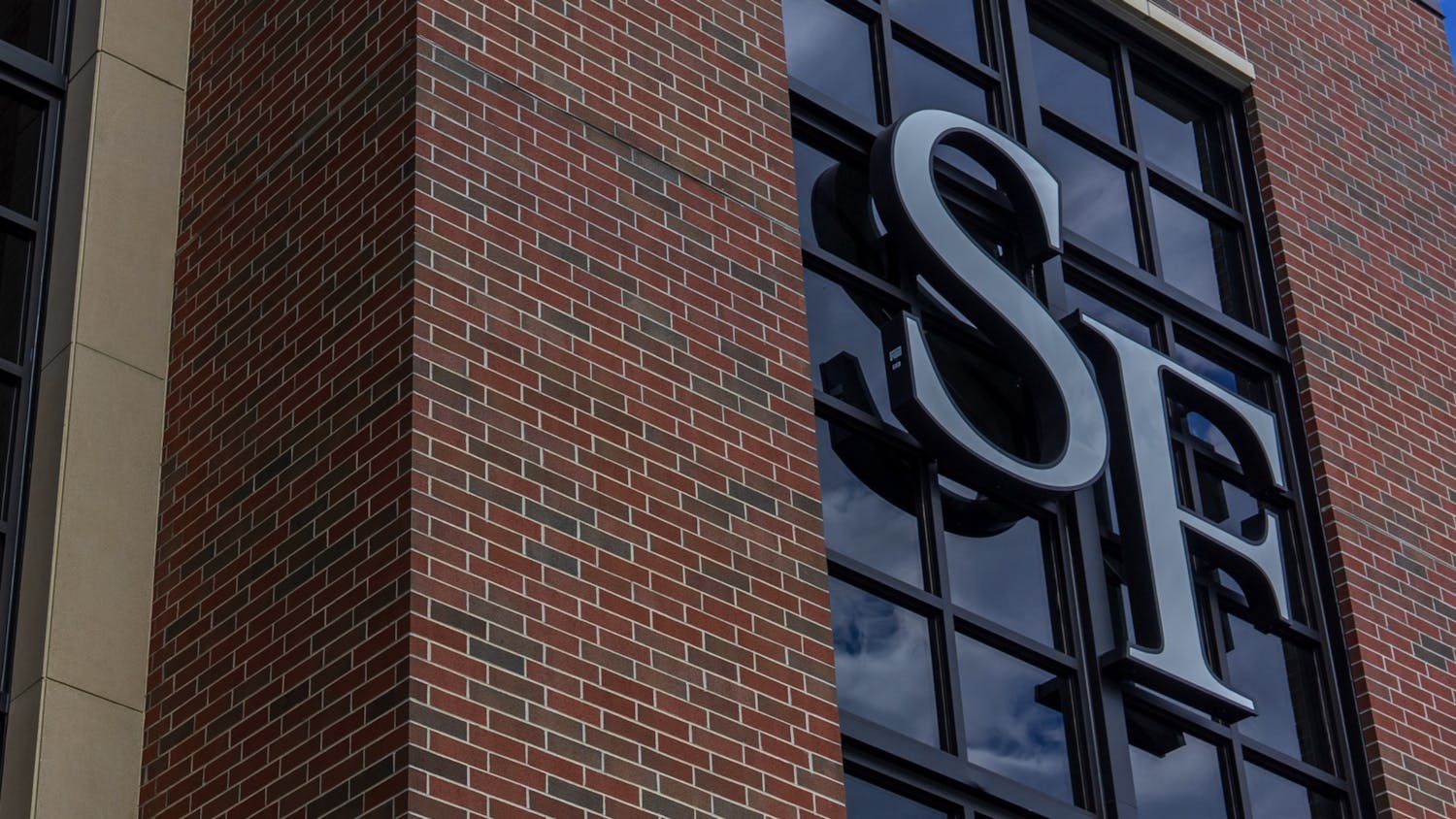The Florida Department of Children and Families awarded eight local nonprofits state grants allocated toward homelessness services.
On July 30, TaskForce Fore Ending Homelessness allocated over $700,000 in state grant awards to Alachua County Coalition for the Homeless and Hungry, Family Promise of Gainesville, Peaceful Paths, St. Francis House, Neighborhood Housing and Community Development Corporation, Another Way, Lee Conlee House and Catholic Charities Bureau.
The Taskforce Fore Ending Homelessness is the lead agency for the Keys To Home Continuum of Care program, a planning body that coordinates housing and services funding for North Central Florida homeless families and individuals. It serves Alachua, Bradford, Gilchrist, Levy and Putnam counties. The grants are supported by the Florida Department of Children and Families 2024-25 funding cycle.
St. Francis House, a nonprofit organization serving women and children, received over $90,000 in grants for its rapid rehousing program. Its main facility serves 35 people each night, and its secondary location, known as Arbor House, houses 20 people each night.
St. Francis House Treasurer Al Cockrell said the rapid rehousing program assists members of the community in obtaining stable housing.
“It’s money for first and last on rent, it’s money for a security deposit, it’s money to turn on utilities and up to three months rent,” he said. “This is huge because it’s a good influx of money to allow us to do that. We’ve been woefully short of funds.”
St. Francis House’s shelter services support guests with meals and case managers to help them reach goals, Cockrell said.
“We have case managers that work with them to better their interview skills, get them nicer clothes and a better haircut,” he said. “They work hard with them to get them back into the employee community and ultimately rent an apartment somewhere.”
St. Francis House’s programs will also be supported by the sale of its Sunrise Residence Inn. The permanent low-income housing program was bought by the Alachua County Housing Authority and is expected to be taken over by September.
“That money will allow us to improve our programming and help more people,” he said. “[Alachua County Housing Authority] will run it in the same manner.”
Each local nonprofit organization works together to find what best suits the needs of an individual, Cockrell said.
“If a woman arrived at St. Francis House, and we realized she would really be better served at Peaceful Paths, we would facilitate getting her there and getting her into that program,” he said. “It works the other way around too.”
Family Promise of Gainesville received $150,800 to support working families in sustaining and maintaining their own housing. Family Promise Executive Director Shari Jones said the organization served 118 families, totalling over 450 individuals in 2023. This year, she said Family Promise hopes to support 250 families.
The biggest struggle Jones sees is a lack of affordable housing, she said.
“We’re talking about police officers, nurses and teachers,” she said. “All of the main service providers that provide services for our community can’t afford to live in our community.”
Jones said many families supported through Family Promise of Gainesville could be considered “hidden homeless.”
“When you think of homelessness and housing instability, you always think of a single person,” she said. “They’re actually in the community standing right next to you, and you don’t even know it.”
Neighborhood Housing and Development Corporation (NHDC) received $64,398 to support affordable housing development, housing counseling and homebuyer education, said NHDC CEO Andre Parchment.
Homebuyer education classes provided by NHDC help others “navigate the difficult portions of down payment systems, including financial education.” The organization has also branched into homebuyer social services, providing “help with rent and utilities.”
Reapplying for grants every fiscal year and searching for new grants is essential to sustaining current programs, Parchment said.
Gainesville Mayor Harvey Ward said homelessness is a spectrum, where situational differences and economic factors may lead to housing instability.
“There are lots of other folks who are homeless, again along the spectrum, from a small family where mom or dad lost their job or they can’t pay the rent this month,” he said.
While the most severe cases of homelessness may be at the forefront of attention and funding, Ward said he believes the best way to support the varying situations of others is through continued outreach services and increased mental health funding.
“We don’t take mental health funding seriously in Florida,” he said. “As long as that is the case, we will have a chronic homelessness issue.”
Since Florida has a “lack of commitment to funding,” Ward said the responsibility to provide a “healthy community” falls onto local governments. The Gainesville Housing and Urban Development and Neighborhood Planning division spent $4.3 million in 2024 to address homelessness and affordable housing.
“They’re the most vulnerable people in our community,” he said. “Frankly, the help we need is funding. If nobody else is dealing with it, the city has to, whether we have the money for it or not, but it sure is easier if the state government is helping fund it.”
Contact Sara-James Ranta at sranta@alligator.org. Follow her on X @sarajamesranta.
Sara-James Ranta is a third-year journalism major, minoring in sociology of social justice and policy. Previously, she served as a general assignment reporter for The Alligator's university desk.






